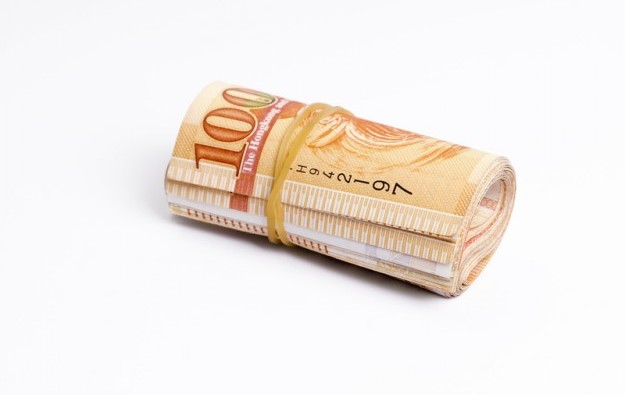Chinese players’ losses unsustainable pre-curbs: MS
Dec 15, 2015 Newsdesk Latest News, Macau, Top of the deck

Chinese VIP and premium mass gamblers were losing between US$100,000 and US$250,000 per head each year at the peak of the casino gambling boom that was seen most prominently in Macau, estimates a new report from Morgan Stanley group.
The document noted that between 2009 and 2013, Macau’s VIP baccarat casino gross gaming revenue (GGR) grew 200 percent – from the equivalent of US$10 billion to nearly US$30 billion.
“The availability of junket liquidity and the [China] real estate bubble [liquidity], used as collateral, drove the segment higher. The problem was the end consumers – especially premium mass and VIP players, were losing between US$100,000 and US$250,000 per annum, which is unsustainable,” wrote analysts Praveen Choudhary, Thomas Allen, Alex Poon and Mark Savino.
“According to one of the largest junkets in Macau, VIP customers used to check in HKD20 million [US$2.6 million] to HKD30 million in a trip at the peak of the cycle,” they added. Most bets in Macau casinos are denominated in Hong Kong dollars.
A report in August from brokerage Sanford C. Bernstein Co LLC, deemed it possible that individuals from approximately 6 percent of China’s U.S. dollar millionaire households – around 120,000 VIP players – had lost up to 20 percent of their net worth to Macau casinos in 2014. Sanford Bernstein also described such losses as “unsustainable”.
Anti-graft 3.0
Morgan Stanley’s 50-page report carrying Tuesday’s date, titled “China Anti-graft – A Necessary Evolution”, attempts to put such gambling losses in the context of China’s much-discussed anti-corruption drive, which began in the autumn of 2012 at the time Xi Jinping became Communist Party chief. It also gives some analysis on what the bank calls a third phase of the campaign and how it might affect the Macau casino market in 2016.
“Understanding of the anti-extravagance issues is not straightforward, partly because the initiatives do not take the normal form of documented policy,” noted Morgan Stanley.
The institution’s report suggests the anti-corruption drive has particularly affected three areas of discretionary (i.e., non-essential) spending by Chinese people: casino gambling, consumer consumption of luxury goods such as watches, and gift giving. The report includes contributions by more than 20 Morgan Stanley analysts covering those business sectors across the world.
The document notes that while all three sectors have been hit by the China anti-graft campaign – in terms of Chinese people’s spending at home and overseas – the sectors have experienced troughs at differing times.
“Chinese liquor and hotel food and beverage volumes normalised as early as 2014, while gaming did not see any impact until first quarter 2014,” noted the report authors.
“Most of the industries have recovered from trough levels except Macau GGR and VIP revenue,” Morgan Stanley added.
Data from the Macau government show Macau’s casino industry has been posting monthly year-on-year GGR declines since June 2014.
The Morgan Stanley report attempts to give some context to one of the questions most commonly asked by investors in Macau gaming operators – ‘When will GGR decline reach the bottom?’
It identifies what it refers to as three phases for China’s anti-graft campaign: “anti-extravagance” (covering the period from 2012 to 2013); “anti-corruption” (2014 to 2015); and “preventive measures” (2016 onwards).
“In the third phase, the Chinese government expects to have institutions and processes to prevent officials from being involved in corruption, according to Xi’s speech on June 26, 2015 at the Politburo collective study session,” stated Morgan Stanley. It added this was a development from what it referred to as the “‘law and order’ approach” of the prior three years.
“The campaign is still ongoing, although we see some stabilisation in the [Macau] mass segment based on the seasonally adjusted month-on-month revenue trend,” said the institution.
Macau’s casino sector is likely to post in December its smallest monthly GGR decline since January, measured year-on-year. But, according to notes this week from two brokerages, GGR is still poised to retreat by at least 20 percent from the prior-year period.
Related articles
-
 Macau mass-market GGR flat sequentially...
Macau mass-market GGR flat sequentially...Jul 16, 2024
-
 Macau premium play demand still robust...
Macau premium play demand still robust...Jul 15, 2024
More news
-
 Donaco EBITDA up y-o-y to above US$4mln...
Donaco EBITDA up y-o-y to above US$4mln...Jul 26, 2024
-
 HK listed Palasino upgrades Czech...
HK listed Palasino upgrades Czech...Jul 26, 2024
Latest News
Jul 26, 2024
Border-casino operator Donaco International Ltd has achieved a 164.17-percent year-on-year increase in its latest quarterly group earnings before interest, taxation, depreciation and amortisation...Sign up to our FREE Newsletter
 (Click here for more)
(Click here for more)
Pick of the Day
”We’ve got more traction outside of Macau at the moment. But Macau’s going be a bigger focus for us”
David Punter
Regional representative at Konami Australia
Most Popular
 Sheraton brand to exit Londoner Macao, to be Londoner Grand July 25, 2024
Sheraton brand to exit Londoner Macao, to be Londoner Grand July 25, 2024  Macau regulator probes unlicensed gaming agents July 24, 2024
Macau regulator probes unlicensed gaming agents July 24, 2024  Philippines gives 20k aliens in POGOs 60 days to leave July 25, 2024
Philippines gives 20k aliens in POGOs 60 days to leave July 25, 2024  Philippines-listed DigiPlus says not affected by POGO ban July 24, 2024
Philippines-listed DigiPlus says not affected by POGO ban July 24, 2024  Sands China 2Q EBITDA down q-o-q amid low hold, renovation July 25, 2024
Sands China 2Q EBITDA down q-o-q amid low hold, renovation July 25, 2024






